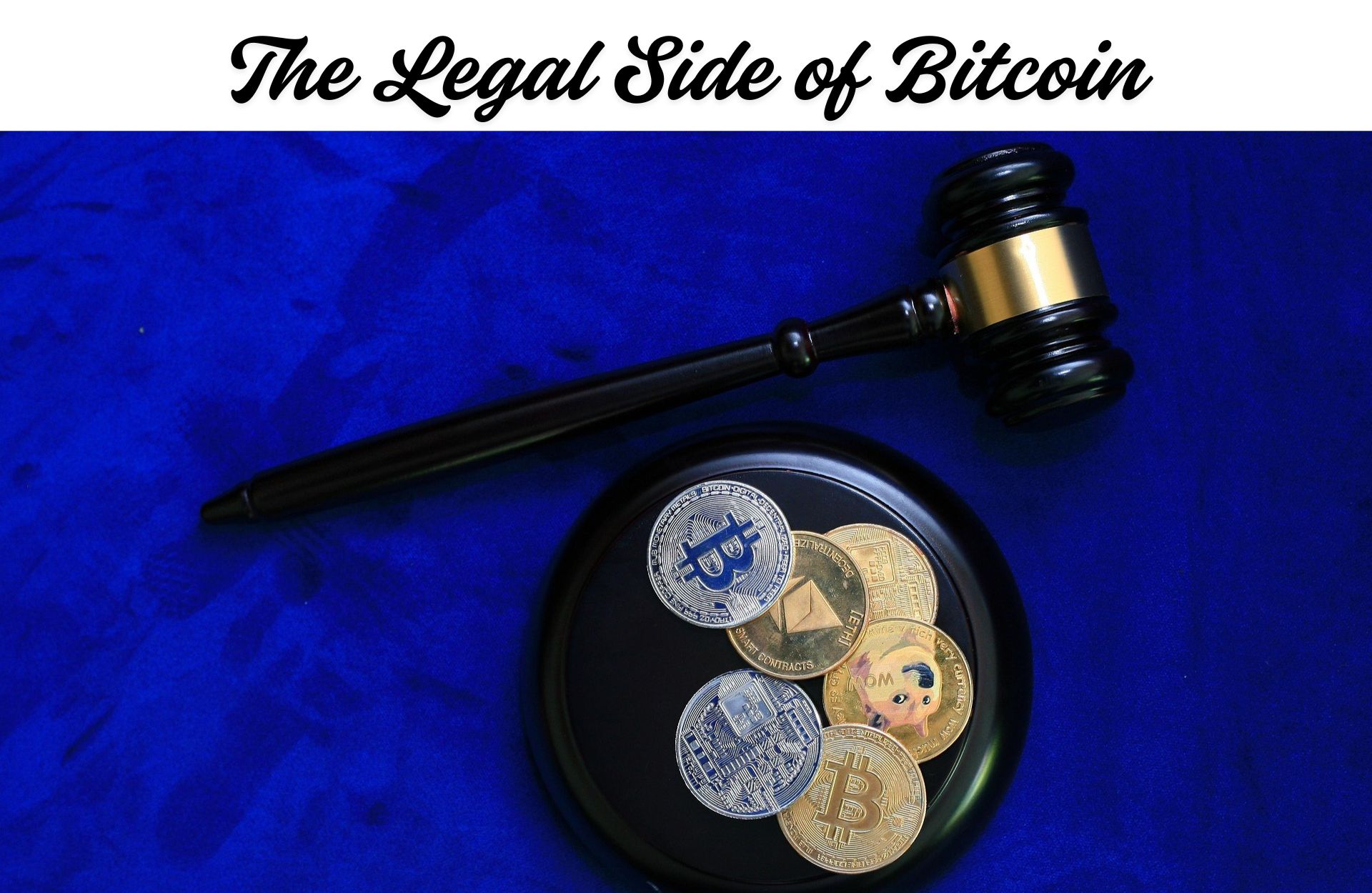The Legal Side of Bitcoin: As Bitcoin continues to gain global traction, questions about its legal status are becoming increasingly important. While many countries have embraced Bitcoin, others have imposed restrictions or outright bans. Regulatory concerns focus on consumer protection, anti-money laundering (AML), and tax compliance.
Navigating the legal landscape is essential for users, traders, and businesses to avoid fines and ensure responsible use. From exchange licensing requirements to individual tax obligations, knowing the legal aspects of Bitcoin contributes to the development of trust and clarity in a rapidly changing digital economy. This guide examines the most important legal considerations surrounding Bitcoin in the current regulatory environment.
The Legal Side of Bitcoin
Bitcoin, a decentralized, international substitute for conventional currencies, has completely changed the way we think about money. But as it becomes more well-liked, so does government interest. Lawmakers from all around the world are attempting to control the use, trading, and taxation of Bitcoin. Knowing the legal aspects of Bitcoin is crucial for anyone working with cryptocurrencies to maintain compliance and security.
Is Bitcoin Legal?
The Legal Side of Bitcoin: Although laws vary widely, most countries allow the possession and use of Bitcoin.
While some governments view Bitcoin as a tool for illicit behavior or a danger to monetary stability, others welcome it as a financial innovation.
Here’s a general overview:
-
Legal and regulated: The usage of Bitcoin is permitted in several nations, including the US, Canada, the UK, Germany, and Japan, which also have taxation and exchange regulations.
-
Limitations or disincentives: Countries such as India and Turkey permit the usage of Bitcoin, but have enforced stringent regulations or deterred investment through banking limitations.
-
Banned: A few countries, such as China and Algeria, have banned Bitcoin trading and mining entirely.
Before buying, trading, or accepting Bitcoin, it’s important to check the laws in your country or region.
Regulatory Concerns
Governments regulate Bitcoin primarily for three reasons:
- Protection of consumers: To stop fraud and scams and make sure platforms run safely.
-
Know Your Customer (KYC) and Anti-Money Laundering (AML): To stop Bitcoin from being used for illicit purposes, including money laundering, drug trafficking, or financing terrorism.
-
Tax compliance – To ensure individuals and businesses report income and gains from Bitcoin activity.
Because of this, the majority of trustworthy cryptocurrency exchanges demand that customers provide identification documents before trading; this procedure is called KYC verification.
Bitcoin and Taxes
In many countries, Bitcoin is treated as property or an asset, not currency, for tax purposes. That means:
-
Buying Bitcoin is not taxable.
-
Depending on whether the value of Bitcoin has increased or dropped since you purchased it, selling, trading, or spending it can result in a capital gain or loss.
-
Mining Bitcoin may be considered income and taxed accordingly.
-
Receiving Bitcoin as payment is treated as regular income based on the market value at the time.
Maintaining thorough records of your activities is essential since failing to disclose gains or losses might result in penalties. For cryptocurrency users, tools like Koinly, CoinTracker, and TokenTax make tax reporting easier.
Bitcoin in Business and Commerce
Businesses can legally accept Bitcoin in many countries, but they must follow applicable tax and reporting rules. For example:
-
Some countries require businesses to convert Bitcoin into local currency for accounting purposes.
-
Businesses may also need to register with financial authorities if they offer services like Bitcoin exchange, custody, or wallets.
While Bitcoin enables fast, low-cost, international payments, regulatory compliance is necessary to avoid legal issues.
Legal Risks and Consumer Protection
The decentralized nature of Bitcoin means it operates without intermediaries.
-
Scams and frauds: Bitcoin’s pseudonymity has attracted scammers and fake investment schemes.
-
Irreversible transactions: Once Bitcoin is sent, it can’t be recovered unless the recipient agrees.
-
No insurance: Unlike bank accounts, Bitcoin holdings aren’t insured by government entities.
Through licensing requirements, transparency laws, and consumer awareness campaigns, regulators are attempting to lower these dangers. Always keep your Bitcoin safely, utilize reliable platforms, and double-check addresses.
Conclusion
The legal environment in which Bitcoin operates is complicated and often changing. Although it is lawful in the majority of countries, its use is strictly regulated to maintain consumer protection, maintain financial stability, and impose taxes. Knowing the legal ramifications of owning, dealing with, or accepting Bitcoin is crucial for both individuals and companies. Maintaining your knowledge and compliance helps validate cryptocurrencies’ role in the financial future while also shielding you from legal issues.




